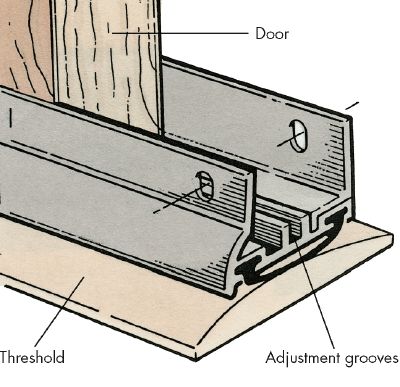
It is important to be familiar with the different types of work electricians do when considering a career in the field. There are many types, including residential electricians, power grid electricians, and engineers. Listed below are some examples of the different types of electrician jobs. For more information about each job, click here. You might even want to consider becoming an electrician yourself!
Electrical engineers
According to the name, electrical engineers work in electrical engineering. The job is quite demanding. They often need to take on large-scale projects and invest large sums of cash. The work-life balance is often difficult because of this high competition. Here are some suggestions for choosing an electrical engineering career. An apprenticeship is a great option if you're interested. You can make a career out of it!
They are skilled in the development of electrical systems. They design and supervise the manufacture of electrical equipment. They work on many projects, including small- to large-scale energy transmission. They also design and enhance existing electric system. The diverse skills of electrical engineers allow them to create products that improve the quality and safety of our lives. Their work is diverse and always fascinating.

Telecommunications electricians
Telecommunications engineers do all types of work, from setting up the equipment for users to training them in connections. While some work alone, most must be on call for weekends or overtime. The danger of lightning and mice eating cables makes it essential to maintain your system, but even a careless worker can spill coffee on a valuable outlet. There are many training options available to help you become a telecommunications contractor.
Telecommunications technicians can work anywhere, urban or rural. While some cables are run over telephone poles, others cross branch lines. This job requires you to have hands-on experience, classroom learning, and at least three to five to five years of apprenticeship. Many telecommunication electricians have the same training as those who are electrical linemen. It is best to obtain a bachelor's in order to be a telecom installer.
Industrial electricians
Industrial electricians are skilled in the installation, control, and maintenance of electrical appliances in industrial buildings. Industrial electricians are often involved in the installation of new equipment or maintaining existing systems. They also repair machines and do preventive maintenance. They communicate with clients and help to understand the root cause of electrical system issues. They may be asked for help in replacing vital electrical equipment. These reports are necessary to ensure that electrical systems in a facility are maintained and meet compliance requirements.
The majority of electricians work 40 to 50 hours per week. However industrial electricians are frequently on call for extended hours due to inclement weather and holidays. These electricians often work long hours and sometimes have to sacrifice their family time. Industrial electricians are often required to work overtime. This could include weekends, holidays, and working during system downtimes. As you gain experience, the initial salary for this job will rise. By combining your education and training, you can expect at least 40 hours a week.

Residential electricians
If you have ever wondered what residential electricians do, read on. Residential electricians work with low voltage systems. Residential electricians can use thinner gauge wiring and less insulation that their commercial counterparts. They will also require more insulation (such as sheathing) for wiring that runs through a house. Commercial electricians might use larger wires. Residential electricians typically use plastic conduits and sheathing.
They can also perform other tasks. For example, they can install a new electrical service in a house, run conduit, and employ wiring-protection measures. They can also install circuitbreaker boxes and other residential wiring systems. They could also be involved in the design of electrical systems, including the placement and maintenance of heating and air conditioning units. They could also participate in new construction projects. They may also advise on the installation of circuit breaker boxes and other electrical systems.
FAQ
When do I need to pay the service/contractor for it?
The type of service is dependent on how much you pay. For example, if you hire a contractor to install a new roof, you would typically make payments as soon as the work was completed. If you purchase a product, such a cooker for your kitchen, from a supplier you might only make payments after it has been tested and received.
What's the purpose for the service agreement?
A Service Agreement defines the terms by which a customer agrees that they will buy goods from your company. It also specifies how you will deliver those services to them in return for payment.
The most widely used type of this document is a Sales Order Form. Here you will list the items being purchased and their prices. The order will also include any additional items, such as delivery costs, VAT, insurance, and so forth. The last step is to specify when and how the order should arrive.
It is possible to use a different document depending on the nature of the transaction.
For example, if you are providing a service rather than selling a product, you may use an invoice instead.
If you are buying something from another person, you would likely use a Purchase Order Form.
Make sure to include all necessary information when you are creating a sales form.
Remember: The more detailed your sales order form is, the easier it will be for the buyer to understand.
Do I have to sign anything prior to starting work?
Yes, your SCA must be signed by both parties. This means that neither party may change their mind after the agreement is signed.
Where can I obtain more information about building permits
Check with your local government authority (for example, NSW Local Government Association) or contact your local real estate agent. These authorities should be able advise you on the steps to take in order to get permission to build.
Who creates a Service Agreement
Your service agreement with your customer defines the services you will offer them. It describes the customer's responsibilities as well as what you can do for them and when they must pay you.
Additionally, the service agreement confirms whether additional fees will apply to extra services.
Service agreements should contain all terms and conditions applicable to the contract. This includes payment methods, delivery times, warranties, etc.
You can use this template to cover every aspect of the agreement.
Statistics
- Reasonable late fees go up to 25% per year on unpaid sums. (lawdepot.com)
- (1) Ascertain the extent to that offers are based on the payment of overtime and shift premiums; and (2) Negotiate contract prices or estimated costs without these premiums or obtain the requirement from other sources. (acquisition.gov)
- (ii) Name, address, and telephone number of each proposed first-tier subcontractor with a proposed subcontract estimated at $10 million or more. (acquisition.gov)
- (v) Place or places of performance of the prime contract and first-tier subcontracts estimated at $10 million or more, if known. (acquisition.gov)
- (1) Except as provided in paragraphs (a)(4) and (a)(8) of this section, if the estimated amount of the contract or subcontract is $10 million or more, the contracting officer shall request clearance from the appropriate OFCCP regional office before- (acquisition.gov)
External Links
How To
What should a service contract include?
Service agreements (SAs) are essential for any business relationship. It describes what you expect of each other and how to achieve it. The SA also defines when and where you expect the other party to deliver on its contractual obligations.
Here are the essential elements to a successful SA
-
Both parties agree on the scope of work and the services they require.
-
Payment terms details, including start date and expiration dates for goods/services.
-
A price agreed upon for the project.
-
Any additional costs like VAT etc.
-
If there are any other issues that need to be addressed.
-
Who will be held responsible for any problems that may arise on the job?
-
How disputes will be resolved.
-
What happens if a party breaches the contract.
-
What happens when there is a disagreement?
-
When does the contract go into effect?
-
What happens if one or both of the parties fail to perform.
-
What time do you need to pay your invoices?
-
Who pays for things such as travel expenses?
-
Where the money came from.
-
What happens if a client changes mind about the project?
-
What happens if the supplier isn't there?
-
Who has permission to view the site during construction
-
What happens if the customer cancels?
-
What happens if the product fails?
-
What happens if the supplier refuses to sell parts?
-
What happens if the equipment is damaged?
-
What happens when the project takes longer to complete?
-
What happens if work isn’t completed in the timeframe agreed upon?
-
What happens if the quality of the finished project falls below expectations?
-
What happens if the cost exceeds?
-
What happens if you don't receive your materials on time?
-
What happens if your material arrives damaged?
-
What happens to the products if they are not up-to-standard?
-
What happens if you cancel the job before it is complete?
-
What happens when the company goes under?